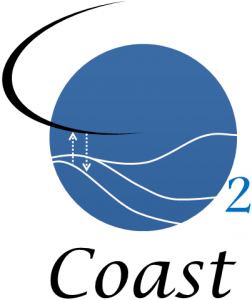 The CO2COAST project will analyze the spatio-temporal variability of pCO2 and air-sea flux of CO2 over the global coastal ocean over the past two decades, using a satellite approach. This 4-year project, funded by the French National Agency of Research (ANR), will be headed by PI Hubert Loisel of the Université du Littoral – Côte d’Opale (LOG and A2DM labs).
The CO2COAST project will analyze the spatio-temporal variability of pCO2 and air-sea flux of CO2 over the global coastal ocean over the past two decades, using a satellite approach. This 4-year project, funded by the French National Agency of Research (ANR), will be headed by PI Hubert Loisel of the Université du Littoral – Côte d’Opale (LOG and A2DM labs).
Due to the relatively limited spatio-temporal coverage of in situ data, uncertainties in coastal carbon fluxes are such that the CO2 flux in the coastal margins remains a poorly constrained term in global carbon budgets. Satellite remote sensing allows for the collection of various physical and biological parameters at global scales, at different temporal resolutions not accessible from other observation methods. In this context, the objectives of CO2COAST are to estimate the global coastal waters CO2 flux from satellite observations at high spatial resolution (1-km2), and assess and analyze its seasonal and inter-annual variability, as well as the trends over the 25 last years. This unique data set will allow researchers to scrupulously analyze the controversial contribution of estuaries and the coastal shelf areas respectively. This methodology is based on the combination of the in situ SOCAT data set of fugacity of CO2, ocean colour radiometry (OCR) and sea surface temperature (SST) observations using a neural net (NN) algorithm coupled with a water class-based approach. Several PhD and postdoc positions will be funded through CO2COAST, which will start in March 2021.
